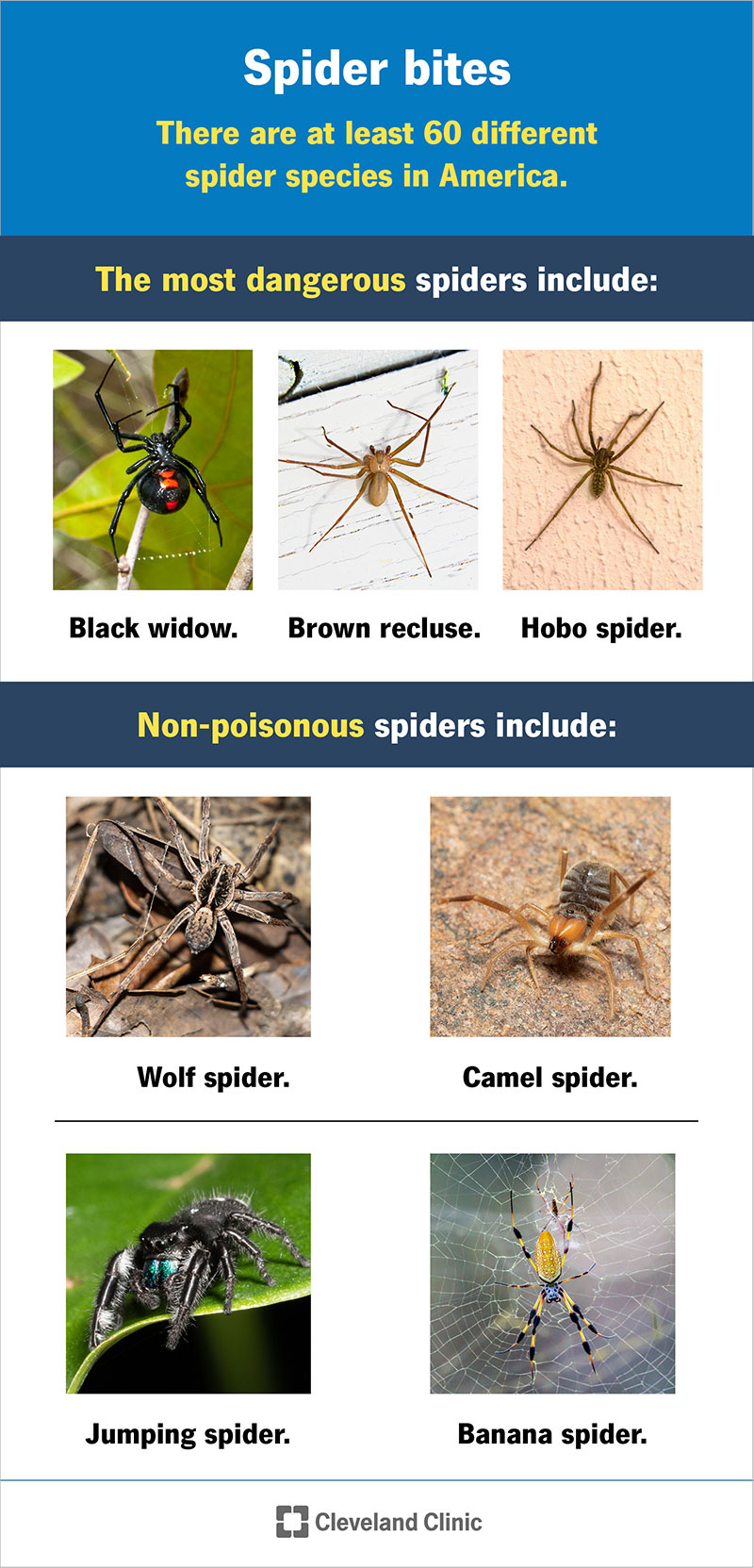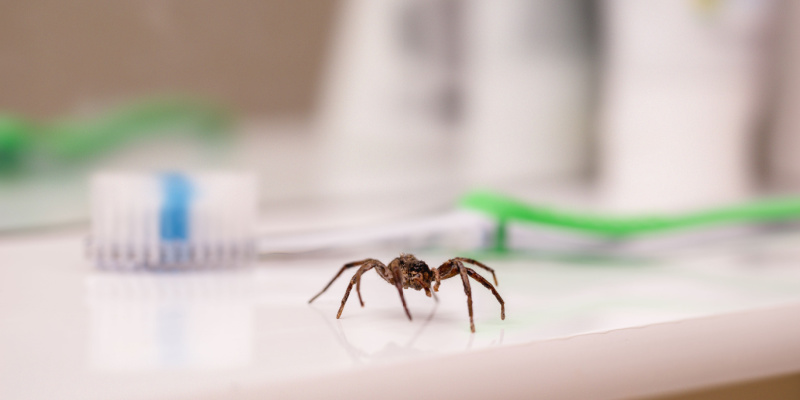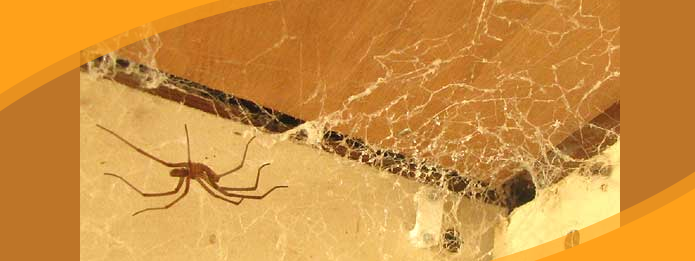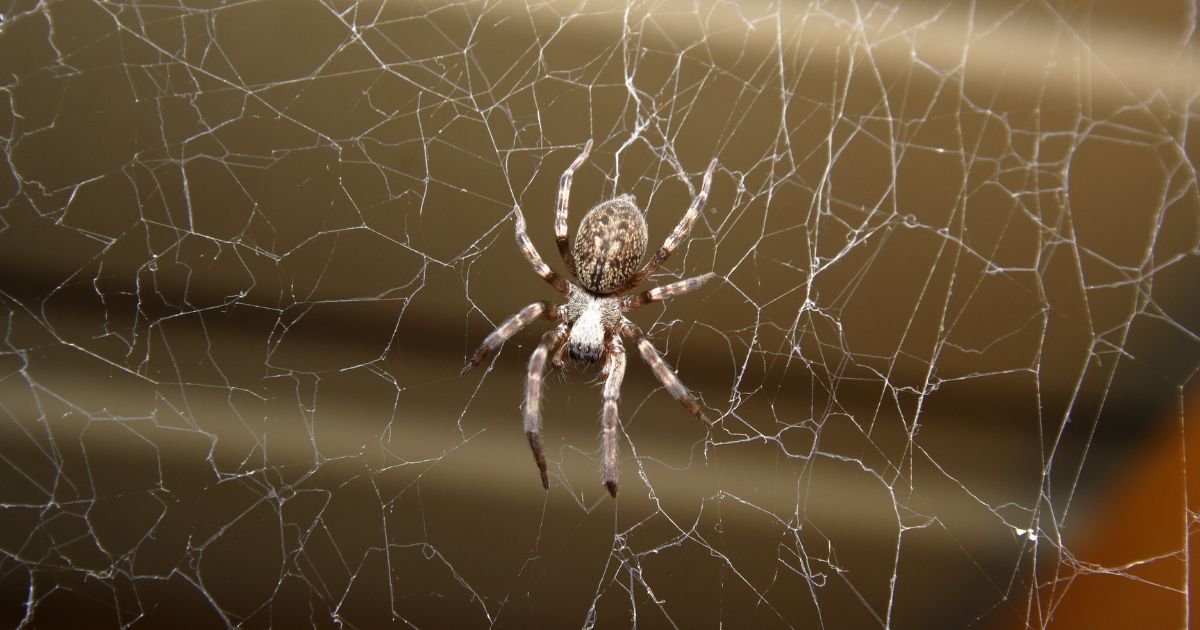If you have a spider problem, start by decluttering and sealing entry points. Then, use natural repellents like peppermint oil to deter them.
Dealing with a spider problem can be unsettling, but there are effective steps you can take to manage the situation. From simple preventive measures to natural repellents, you can address the issue without resorting to harsh chemicals. By following these strategies, you can create a spider-free environment in your home.
Let’s explore these methods in more detail and understand how to handle a spider problem effectively.

Credit: my.clevelandclinic.org
Identifying Your Spider Problem
Common House Spiders
Common house spiders, such as the cellar spider and the cobweb spider, are often found indoors. They are typically small in size, with long, thin legs and a round body.
Signs Of Infestation
- Presence of webs in corners, ceilings, and other secluded areas
- Frequent sightings of spiders, especially during the evening
- Finding egg sacs or shed skins in undisturbed areas
- Bites with symptoms like redness, swelling, and pain
Why Spiders Enter Your Home
Spiders enter your home in search of food, water, and shelter. If you have a spider problem, the best thing to do is to seal all the cracks and crevices, keep your home clean and decluttered, and use spider repellents or traps.
Avoid killing spiders as they are beneficial for controlling other pests.
Spiders are known for their ability to enter our homes unnoticed, especially during the colder months of the year. There are a few reasons why spiders choose to live among humans, and understanding these reasons can help you prevent a spider infestation in your home.
Seeking Shelter
Spiders are attracted to warm, dry, and dark places to hide and build their webs. Your home provides an ideal environment for spiders to seek shelter and protection from predators. They can enter through tiny cracks and crevices in walls, floors, and windows, making it difficult to keep them out.
In Search Of Food
Spiders feed on insects such as flies, mosquitoes, and ants, and your home provides an abundance of these food sources. If you have a lot of insects in your home, you are more likely to have spiders as well. To prevent spiders from entering your home, it’s important to eliminate their food source. Keep your home clean and tidy, and dispose of any food scraps and garbage properly.
Preventing Spider Infestations
To prevent spider infestations, seal any cracks and gaps in your home, especially around doors and windows. Use screens on windows and doors to keep spiders out. Keep your home clean and clutter-free, and regularly dust and vacuum to eliminate spider webs and eggs. If you have a severe spider infestation, it’s best to seek professional help to ensure effective removal. In conclusion, preventing spider infestations in your home requires a combination of preventative measures and regular maintenance. By understanding why spiders enter your home and taking the necessary steps to prevent their entry, you can ensure a spider-free home.
Risks Associated With Spiders
Spiders can present various risks, from harmless species that are just a nuisance to potentially harmful ones that pose health dangers. Understanding the difference between harmless and harmful spiders, as well as the potential health risks they bring, is crucial in dealing with a spider problem.
Harmless Vs. Harmful Spiders
Spiders are either harmless or harmful based on their venom potency and aggressiveness. Harmless spiders like daddy longlegs are beneficial predators that help control pests.
Harmful spiders, such as black widows and brown recluses, have venom that can cause severe reactions in humans.
Potential Health Risks
Spiders can bite when threatened or disturbed, leading to symptoms ranging from minor irritation to severe allergic reactions.
- Common symptoms include redness, swelling, pain, and itching at the bite site.
- In severe cases, spider bites can cause nausea, muscle cramps, and difficulty breathing.
It’s essential to seek medical attention if you suspect a spider bite, especially if you experience worsening symptoms.

Credit: triopestcontrol.com
Preventative Measures
If you want to keep spiders at bay and prevent them from invading your home, there are several proactive steps you can take. By implementing these preventative measures, you can significantly reduce the likelihood of a spider problem. Let’s explore some effective strategies:
Sealing Entry Points
One of the most crucial steps in spider prevention is sealing off any potential entry points. Spiders can squeeze through tiny gaps and cracks, so it’s essential to inspect your home for openings. Here’s what you can do:
- Inspect doors and windows for gaps, and seal them with weatherstripping or caulking.
- Examine the foundation and walls for cracks, and fill them with an appropriate sealant.
- Install door sweeps on exterior doors to prevent spiders from sneaking in.
- Use screens on windows, vents, and chimneys to block spider entry points.
Reducing Clutter
Clutter provides spiders with hiding spots and creates an environment that encourages their presence. By reducing clutter, you can make your home less attractive to these eight-legged intruders. Here’s what you can do:
- Regularly declutter and organize your living spaces, paying attention to areas such as basements, attics, and garages.
- Store items in sealed containers to prevent spiders from nesting in them.
- Vacuum frequently, especially in corners, behind furniture, and along baseboards to remove spider webs and eggs.
- Keep your outdoor areas tidy by trimming vegetation and removing debris, as spiders often use these as hiding spots.
By implementing these preventative measures, you can significantly reduce the chances of a spider problem in your home. Remember, regular maintenance and vigilance are key to keeping these unwanted guests at bay.
Natural Remedies To Deter Spiders
Dealing with a spider problem can be unsettling, but there are natural remedies you can use to deter these unwelcome guests from your home. Not only are these methods effective, but they are also safe for you, your family, and the environment. Let’s explore some natural remedies that can help keep spiders at bay.
Essential Oils
Essential oils can be powerful allies in the fight against spiders. Peppermint oil, lavender oil, and tea tree oil are known for their ability to repel spiders due to their strong scents. Simply mix a few drops of your chosen essential oil with water in a spray bottle and apply it around entry points, windows, and other areas where spiders may enter your home.
Vinegar Solution
Vinegar is an effective and affordable solution for deterring spiders. Create a 50-50 solution of white vinegar and water, and spray it in areas where spiders are likely to lurk, such as corners, baseboards, and other nooks and crannies. The strong odor of vinegar acts as a natural deterrent, keeping spiders at bay without the use of harmful chemicals.
Chemical Solutions
If you have a spider problem, consider using chemical solutions to address the issue effectively. These solutions can help eliminate spiders from your home and prevent them from returning, providing a long-term solution to your problem.
Safe Use Of Insecticides
When it comes to dealing with a spider problem, chemical solutions can be an effective approach. However, it’s important to use insecticides safely to avoid any harm to yourself, your family, or your pets. Always read the instructions on the label carefully before using any insecticide. Here are some tips for safe use of insecticides:
- Wear protective clothing such as gloves and a mask to avoid any contact with the skin or inhalation of the fumes.
- Avoid applying insecticides in areas where food is prepared or consumed.
- Do not apply insecticides near water sources or where they can be washed into waterways.
- Store insecticides in a secure place, out of reach of children and pets.
- If you experience any adverse reactions after using insecticides, seek medical attention immediately.
When To Call Professionals
If you have a severe spider infestation or you’re not comfortable using insecticides yourself, it’s best to call a professional pest control company. They have the knowledge and expertise to deal with spider problems effectively and safely. Additionally, they can provide you with advice on how to prevent future infestations. When choosing a pest control company, make sure they are licensed and insured. You can also ask for referrals from friends and family or read online reviews to find a reputable company. In conclusion, chemical solutions can be an effective approach to deal with a spider problem, but it’s important to use insecticides safely. If you’re not comfortable using insecticides yourself or you have a severe infestation, it’s best to call a professional pest control company. By following these tips, you can effectively deal with your spider problem and prevent future infestations.
Cleaning And Maintenance Tips
If you’re dealing with a spider problem, here are some cleaning and maintenance tips to help you out. Keep your home clutter-free, seal any cracks or openings, regularly vacuum and dust, and consider using natural spider repellents like peppermint oil or vinegar.
Regular Dusting And Vacuuming
Regularly dust and vacuum all areas of your home to remove spider webs and eggs.
Managing Outdoor Lighting
Switch to yellow bulbs for outdoor lights to reduce attracting spiders to your home.
When To Seek Professional Help
Spider infestations can vary in severity, making it crucial to know when to seek professional assistance. Identifying a Serious Infestation
If you notice multiple spiders or extensive webbing in your home, it may indicate a serious problem. Choosing the Right Pest Control Service
Professional exterminators have the expertise and tools to effectively eliminate spiders. Identifying a Serious Infestation
Seek professional help if you have recurring spider sightings or experience bites. Choosing the Right Pest Control Service

Credit: www.trulynolen.ca
Frequently Asked Questions
Q: How Do I Know If I Have A Spider Problem?
A: Signs of a spider problem include the presence of spider webs, seeing spiders indoors, or experiencing multiple spider bites.
Q: Are All Spiders Dangerous?
A: While most spiders are harmless, some species like black widows or brown recluses can be venomous and potentially dangerous. It’s best to exercise caution and seek professional help when dealing with these types of spiders.
Q: How Can I Prevent Spiders From Entering My Home?
A: To prevent spiders from entering your home, seal any cracks or openings, remove clutter and debris, keep your home clean and tidy, and use spider repellents or natural remedies like peppermint oil or vinegar.
Q: What Should I Do If I Find A Spider In My Home?
A: If you find a spider in your home, it’s recommended to gently capture it using a glass and a piece of paper, and release it outside. If you are unsure about the type of spider or feel uncomfortable handling it, it’s best to contact a professional pest control service.
Conclusion
Dealing with a spider issue can be unnerving, but taking swift action is crucial. By implementing the tips outlined in this post, you can effectively address and prevent spider problems in your home. Remember, regular maintenance and seeking professional help when necessary are key to keeping your space spider-free.
Related posts:

I’m MD Tanvir, and I bring years of expertise gained from working closely with pest control companies to the forefront. My journey in the industry has inspired me to launch Bug Battler, a platform aimed at equipping people with the know-how to combat pests autonomously. Through Bug Battler, I aim to empower individuals with practical insights to tackle pest infestations effectively.

